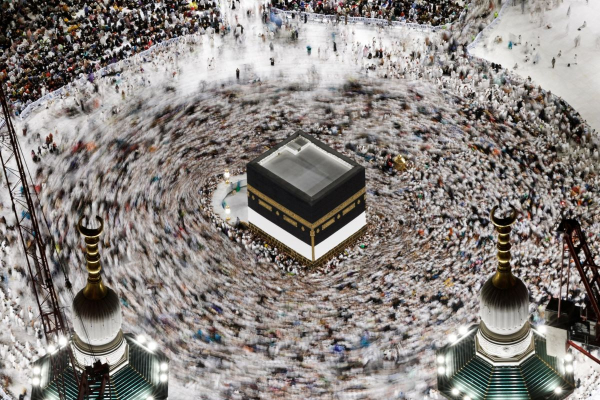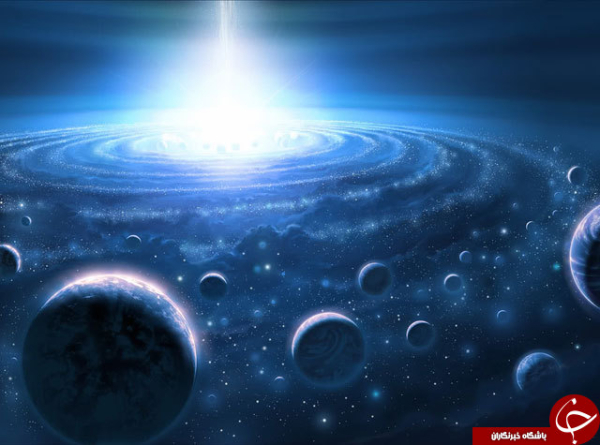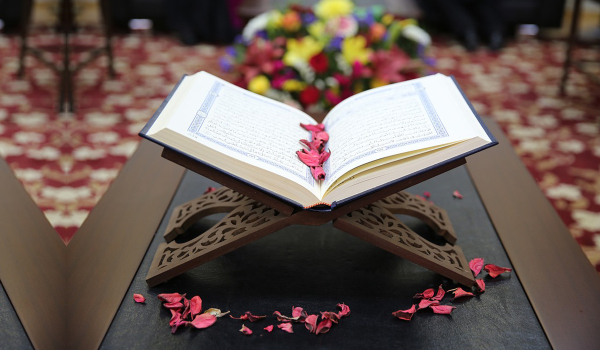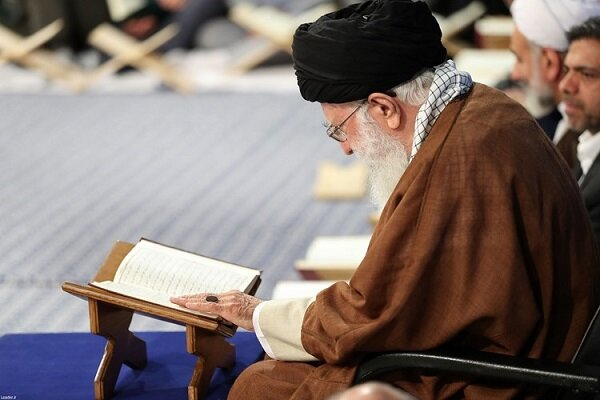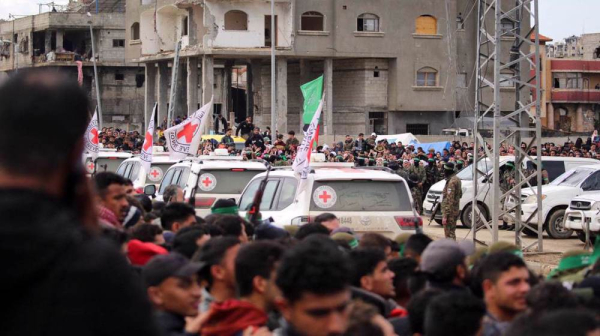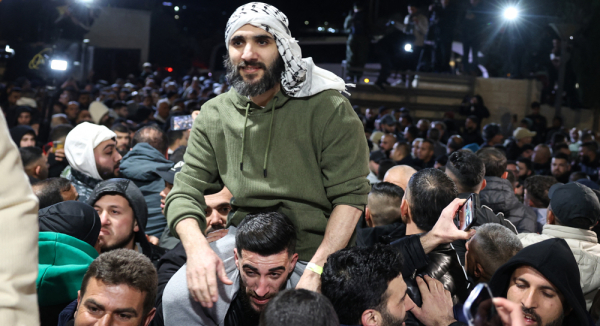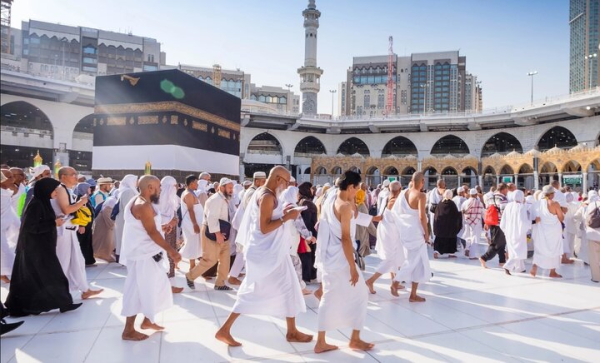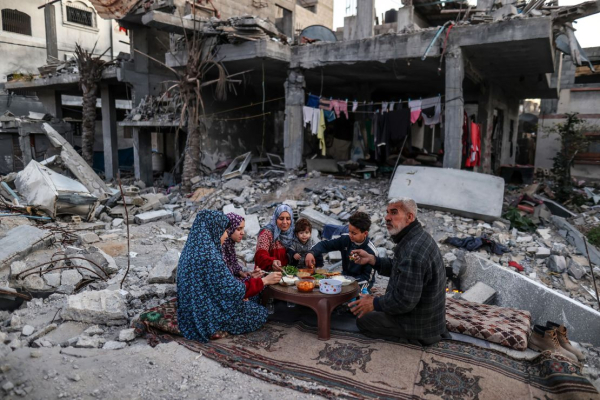zarezadeh
Where is the Mataf during the crowded time?
During the obligatory Hajj, the number of pilgrims is large and it is difficult to circumambulate the Kaaba. Is it possible to circumambulate from a distance further away or from behind the Maqam of Prophet Ibrahim?
A:
The Tawaf must be between the Maqam of Ibrahim and the Kaaba, but in case of hardship or hardship, outside it is also not a problem.
Can God be seen?
Brief answer
According to the judgment of reason and the law of God Almighty, - neither in this world nor in the Hereafter - it cannot be seen with the eye of the head, but it can be seen with the eye of the heart. Hearts perceive and understand Him to the extent of their existential capacity, through inner intuition, after the inner purity and purification of the soul through the purification of the soul and the purity of the soul through the blessings of religious worship and austerities.
Detailed answer
If what is meant by seeing is seeing outwardly and with the eyes, then God cannot be seen, both according to the judgment of reason and according to the statement of the law.
However, according to the judgment of reason; the operation of seeing and seeing takes place through the encounter of an external object with the eye and the light vibrations of sending and reflecting light waves; that is, first: it must be an external object; second: the encounter and alignment of the external object with the eye; Therefore, our eyes do not see the objects behind the head, while God is neither a body nor has the characteristics and characteristics of a body (such as facing); therefore, He will never be seen with the eyes of the head.
However, according to the Sharia: The Quran and the narrations clearly consider it impossible to see God.
a) The Quran:
He said: “You will never see me”;[1] O Moses, you will never be able to see me.
“La tadrakah al-absara”;[2] The eyes do not see Him.
b) The narrations: “And He withheld Himself from the eye of the All-Seeing”;[3] meaning, God never appears before the eyes of the All-Seeing.
“Lama tarka al-a’yun”;[4] The eyes have not seen You.
“Lat takrah al-a’yun bi-mashhadah al-a’yun”;[5] The eyes will never see Him clearly.
But if what is meant by seeing is inner seeing and knowledge, knowledge and witnessing the names and attributes of God Almighty, then of course, it is inner seeing to the extent of the capacity, aptitude and ability of humans. As Ali (AS) said: “But the understanding of the hearts”;[6] hearts and minds understand Him.
And in another hadith, Imam Ali (AS) said to Dhul-Abb: And O you, the eyes do not see Him, but the hearts do see Him.[7]
[1]. Al-A’raf, 143.
[2]. An’am, 103.
[3]. Sayyid Razi, Muhammad ibn Husayn, Nahjul-Balagha, Mohaqiq, Subhi Salih, p. 87, Qom, Hijrat, first edition, 1414 AH.
[4]. Ibid., p. 158.
[5]. Ibid., p. 258.
[6]. Ibid., p. 258.
[7]. Kulayni, Muhammad ibn Yaqub, Kafi, researcher, corrector, Ghaffari, Ali Akbar, Akhundi, Muhammad, vol. 1, p. 138, Tehran, Dar al-Kutub al-Islamiyya, fourth edition, 1407 AH.
God is self-sufficient, so why has He commanded us to worship Him?
Answer:
The Quran says: “O people! You are all in need of God. God alone is self-sufficient and worthy of all praise and adoration.”(1)
Therefore, God is absolutely self-sufficient and all His creatures are in need of Him. He is the One who fulfills all the needs of His creatures.
God does not need our worship, rather we need His worship so that we may attain eternal blessings through His service. The Quran says: “Whoever disbelieves and abandons Hajj, has indeed harmed his own soul. God is self-sufficient.”(2)
In another verse, He said: “Whoever strives and strives, strives for his own soul; for God is self-sufficient.” (3)
In another place, He says: “Whoever does a good deed, does it for his own good, and whoever does an evil deed, does it for his own harm. Then to your Lord you will all return.”(4)
In another verse, He says: “Whoever chooses purity, it is for his own good.”(5)
As a result, man develops in the light of good deeds and flies to the heaven of nearness to God and reaches eternal happiness. And he falls due to crime and sin and is caught in eternal misery.
Worship of God is doing any act that brings man close to God and keeps him away from evil.
Obviously, worship of God is not limited to prayer. Sincere service to people, helping people and helping the weak and needy, politeness and respect, restraining the hands, tongue and ears, etc. are all acts of worship. Doing any act that is recommended in the verses and narrations is worship.
God made prayer obligatory so that man, by remembering God, would abandon the desires of Satan and would come out of immorality and evil (7); therefore, its benefit is for man himself. For this reason, all divine prophets and heavenly books have called man to prayer. What was said was only a brief reference to the individual philosophy of prayer, and prayer and other acts of worship have profound wisdom from various social, cultural, political, and other aspects.
Prayer practically brings about solidarity among Muslims and a sense of one spirit among them; because they all pray for the same problem and towards the same Qiblah, and this will have valuable consequences.
On the other hand, we reach perfection by performing acts of worship, but it should be known that: the relationship between perfection and worship is not a situational and conventional relationship; rather, it is an essential and evolutionary relationship. Just as a cold body heats up due to the proximity of hot bodies, man also moves towards perfection in the light of connection and intimacy with absolute perfection.
Here, it is necessary to state a few introductions:
1. There is no absolute perfection other than God.
2. Perfection cannot be achieved except in the shadow of a relationship with absolute perfection.
3. Relationship with absolute perfection has its own specific ways, the best of which God has expressed in the form of acts of worship.
As a result, it becomes clear that by other than these ways, achieving perfection will be nothing more than a dream and an illusion.
In the Islamic perspective, all divine commands are in accordance with the interests and corruptions of the self-commanding self; that is, if, for example, the command to pray is given with specific details and conditions, it is all for the sake of the real interests in which the action is hidden and man is in dire need of it on the path to perfection and eternal happiness and without it he will be at a disadvantage. Of course, in some cases there are alternative solutions, but these cases are also specified in the divine religion, not by using one's own reason.
Furthermore, worship and relationship with God have two sides:
1. God, who is worshipped and is the object of praise and prayer.
2. A worshipper and a prayerful person.
Also, the most basic thing that a person needs on the path of worship and finding the path to God are two things:
Theology; that is, first, he must have a relatively correct knowledge of Him and know who he is facing.
Pathology; that is, he must know how he can establish a relationship with Him and what is the best, closest, most accepted, and safest path to Him?
Now the question arises: does God - who is absolute knowledge - know Himself and the best path for man to Himself better? Or does man, who has not yet properly known not only God, but even himself? So if He knows better and has placed the best path before man based on that and commanded him to follow it, what sound and solid logic would allow us to reject it and go to another path!
In short, the way of life - in all aspects, even in the worship of God - requires correct rules and laws, and violating them will only lead to going astray, decline, and destruction. There is no rule or law that can guide a person to his perfection except the law of God: (And who is better than God in judgment for a people who are certain) (8) because He is the Creator of all beings and the world of existence, and He Himself knows best what He has created and, based on the purposefulness of the world of creation (according to His wisdom), in which direction and in what manner it should go and follow the path and conduct. Therefore, turning away from the divine law - which is conveyed by the prophets - and turning to any rule or law other than God is considered the "approach of ignorance" (9).
Footnotes:
1. Fatir (35), verse 15.
2. Al-Imran (3), verse 97
3. Ankabut (28), verse 6.
4. Fajr (89), verses 27-30.
5. Dhariyat (51), verse 56.
6. Mu'minun, verse 2.
7. Ankabut (29), verse 45.
8. Al-Ma'idah (5), verse 50.
9. Ibid.
Evidence for the Quran's immunity from distortion from the Shiite perspective
Do Shiites believe that the Quran of Muhammad (peace be upon him) has been distorted? How can it be proven that the Quran has not been distorted?
The Shiite claim that the Quran has been distorted is completely baseless because the Shiites consider the Quran to be a complete divine book, immune to any change or distortion, and have complete trust in it.
Answer:
Short answer:
The Shiite claim that the Quran has been distorted is completely baseless and contradicts the Quranic, narrational, and rational evidence, and the views of the great Shiite scholars. The Shiites consider the Quran to be a complete divine book, immune to any change or distortion, and have complete trust in it. Such a belief is not only rooted in Shiite religious teachings, but is also consistent with Muslim consensus and the divine promise to preserve the Quran. Therefore, it is necessary for every fair-minded Muslim to avoid repeating this baseless suspicion and strengthen the unity of the Islamic Ummah on the basis of the Holy Quran.
Detailed Answer
For a long time, one of the suspicions that some opponents of the Shiite religion have raised is the claim that the Shiites believe in the distortion of the Holy Quran. This claim is made contrary to the fundamental teachings of the Shiites and the statements of the great scholars of this religion and is often the result of misunderstanding or selective narrations. The Imamiyya Shiites, as one of the largest Islamic sects, have always considered the Holy Quran to be a preserved divine book, immune to any change or distortion, and have presented solid evidence to prove this. This article attempts to show, using Quranic, narrational, and rational evidence and the views of Shiite scholars, that the Shiites do not believe in the distortion of the Quran and that the Quran that we now have in our hands is the same Quran that was revealed to the Prophet without any addition or omission.
Evidence for the Quran's immunity from distortion
The evidence for the Quran's immunity from distortion falls into two basic categories: rational and narrative evidence.
Rational Evidence
A. The Necessity of the Completeness of the Proof and the Immunity of the Quran from Distortion
Communicating divine commands and completing the proof are among the duties of the prophets, which the Quran also emphasizes, and the heavenly books complete the proof for people by conveying divine commands and prohibitions. The Quran, due to its universality and eternity and the finality of the Prophet (peace and blessings of Allaah be upon him and his family), must remain unchanged throughout all ages. The possibility of the Quran being distorted would undermine its authenticity and guidance, and by deleting part of the divine message, the Quran would no longer be a complete proof. In this case, the finality of the Prophet (peace and blessings of Allaah be upon him and his family) would be questioned, and a new prophet and book would be needed, which contradicts the principle of finality. Therefore, demonstrative reason dictates that the Quran’s immunity from any distortion is a prerequisite for its completion of the proof and guidance, along with the finality of the Prophet (peace and blessings of Allaah be upon him and his family).(1)
B. The Miracle of the Quran is Associated with the Incorruptibility of the Quran
The miracle of the Quran is proven by its consistency and is accepted by Muslims. Reason dictates that the miracle of the Quran is associated with its lack of distortion; because if distortion occurs in abundance, it means that people have been able to produce words identical to the Quran, in a way that is not recognizable. This causes the collapse of the challenge and negation of the miracle of the Quran, which is impossible; because so far no one has been able to produce words identical to the verses of the Quran; therefore, the miracle of the Quran requires its immunity from any distortion.(2)
Traditional evidence
A. The Quran
The strongest traditional evidence for the purity of divine revelation from distortion is the Wise Quran itself; which clearly indicates the Quran’s immunity from distortion, including the verse of preservation(3) which clearly shows that the Quran is protected from distortion and that God will defend it and that no power can change or distort it. Also, the verse of negation of falsehood(4) which considers the Quran to be free from any falsehood, including distortion, and introduces it as being free from any change or transformation; and also the verse of divine observation(5) which negates the possibility of any addition or omission in all stages of the Quran’s perception, memorization, dictation and transmission until the Quran reaches the people in all ages.(6)
B. Tradition
The second reason after the Quran among the narrated reasons for the Quran’s purity from distortion is the tradition; among the narrations that indicate the Quran’s purity from distortion is the Hadith of Al-Thaqalayn; This hadith guarantees the constant companionship of the Quran and the progeny until the Day of Judgment and considers adherence to them as a barrier to misguidance. Since a distorted book cannot be a guide, the immunity of the Quran from distortion until the Day of Judgment is a definite result of this narration. (7) Also, narrations of the presentation of the Quran, narrations of referring to the Quran during seditions, etc. are among the narrations that indicate this issue, and addressing all of them requires another opportunity. For further study in this field, refer to the book: Javadi Amoli, Abdullah, The Purity of the Quran from Tahrif, Qom-Iran, Israa Publishing, p. 101
Conclusion:
The claim that the Shia believe in the distortion of the Quran is not only baseless, but also contrary to the fundamental teachings of this school and the consensus of its scholars. Rational reasons, such as the necessity of the completion of the proof and the association of miracles with the immunity of the Quran, show that the Quran is immune from any distortion due to its universality and eternity. Also, narrations, including verses of the Quran, such as the verse of preservation, the verse of negation of falsehood, and the verse of divine observation, and narrations such as the Hadith of Thaqalain, clearly indicate the integrity of the Quran.
In addition, great Shiite scholars, including Sheikh Saduq, Sheikh Mufid, Sayyid Murtaza, Sheikh Tusi, Allama Tabataba'i, Imam Khomeini, and Ayatollah Khoei, have explicitly rejected any distortion of the Quran and considered it to be contrary to the continuity and authenticity of the Quran. This broad consensus shows that the belief in the immunity of the Quran from any change and distortion is one of the fundamental principles of the Shiite religion.
Footnotes
1. See: Javadi Amoli, Abdullah, The Purity of the Quran from Tahrif, Qom-Iran, Israa Publishing, p. 44
2. Ibid., p. 48
3. Surah Al-Hijr, verse 9
4. Surah Al-Fussilat, verses 41 and 42
5. Surah Al-Jinn, verses 26-28
6. See: Javadi Amoli, Abdullah, The Purity of the Quran from Distortion, Qom-Iran, Israa Publishing House, p. 49
7. See: Javadi Amoli, Abdullah, The Purity of the Qur
Shia scholars' views on the distortion of the Quran
The issue of the absence of distortion of the Quran has reached a point of consensus among Shia and Sunni scholars, and the claim of distortion has been raised only by a small and unreliable minority. Shia elders, including Sheikh Saduq, Sheikh Mufid, Sayyid Murtaza, Sheikh Tusi, and Allama Tabarsi, have explicitly emphasized the authenticity and soundness of the Quran. Sheikh Saduq considers the existing Quran to be complete and without flaws, and Sheikh Mufid has described the narrations indicating distortion as isolated and unreliable news.(1) Sayyid Murtaza has also rejected any claim of distortion, citing the repetition of the Quran and the relentless efforts of Muslims to preserve it.(2) Sheikh Tusi and Allama Tabarsi also emphasize that the correct Imamiyyah doctrine is based on the denial of any change or deficiency in the Quran.(3) Other Shiite scholars such as Allama Hilli, Mohaqiq Ardabili, Kashif Al-Ghita, Mohaqiq Thani, as well as the great men of the time, Hazrat Ustad Allama Tabataba'i, Imam Khomeini (Quds Al-Sirrah), and Ayatollah Khu'i have explicitly rejected the claim of distortion, whether excessive or deficient. The clear views of these scholars throughout the history of Shiism reject any attribution of distortion to the Quran by the Shiites.(4)
1. Mufid, Muhammad ibn Muhammad, Al-Masā’il al-Sarwiyah, Qom-Iran, Al-Al-Mufār al-Alīfah al-Shaykh al-Mufīd, p. 82
2. Quoted from Tabarsi, Fadl ibn Hassan, Majma’ al-Bayān, Beirut-Lebanon, Al-Alamī Institute, 1415 AH, first edition, vol. 1, p. 43
3. Tusi, Muhammad ibn Hassan, Al-Tabyān, Beirut-Lebanon, Dar Ihya’ al-Turat al-Arabī, vol. 1, p. 3; Tabarsi, Fadl ibn Hassan, Majma’ al-Bayān, Beirut-Lebanon, Al-Alamī Institute, 1415 AH, first edition, vol. 1, p. 42
4. See: Javadi Amoli, Abdullah, The Purity of the Quran from Tahrif, Qom-Iran, Isra’ Publishing House, p. 110
Hamas: Deal reached with Israel to release 620 Palestinians following delay
Days after Israel failed to release hundreds of Palestinians in exchange for Israeli captives, Hamas says it has reached a new agreement with mediators in Egypt to bring the abductees home.
The Egyptian-brokered agreement between Hamas and Israel will also see the exchange of the final four bodies of Israeli captives due to be released in the first phase of the ceasefire deal.
Hamas spokesperson Hazem Qassem said on Wednesday that the resistance fighters would hand over the bodies of the captives on Thursday “simultaneously with the occupation’s release of the postponed batch, in addition to the release of the equivalent number of women and children who were arrested after October 7 in the Gaza Strip.”
There “are clear guarantees from the mediators” that Israel must abide by what has been agreed upon, Qassem said.
The body of Israeli captive Ohad Yahalomi is one of four set for a handover in Gaza on Thursdays, according to Hamas officials.
Israeli media reports said the bodies of the captives would be handed over to Egyptian authorities.
Israel had delayed the release of the Palestinian prisoners after Hamas handed over six Israeli captives from Gaza on Saturday.
Hamas said the delay is a “serious violation” of a ceasefire that largely halted Israel’s brutal war on the Gaza Strip after more than 15 months.
The truce deal, which took effect on January 19, has also seen 25 Israeli captives released alive so far in exchange for hundreds of Palestinian prisoners.
The latest agreement would complete the current six-week first phase of the deal which will expire this weekend.
During the first phase, Hamas is returning 33 captives — including eight bodies — in exchange for nearly 2,000 Palestinian prisoners.
The latest exchange could also pave the way for negotiations of a second phase, which were supposed to begin weeks ago, but never did.
The second phase was to include a permanent end to Israel’s military campaign, a full withdrawal of the regime’s forces from Gaza and the release of around 60 remaining captives held by Hamas.
And, the third phase of the deal was to include the reconstruction of Gaza, which has been decimated by Israel.
According to UN satellite data (UNOSAT), two-thirds of Gaza's pre-war structures – over 170,000 buildings – have been damaged or flattened by the regime’s military forces.
Press TV’s website
Palestinian prisoners freed as Hamas releases bodies of Israeli captives
number of Palestinian prisoners have been freed by the Israeli regime as the Gaza Strip-based resistance movement Hamas hands over the bodies of four Zionist captives to the International Committee of the Red Cross for transfer to the regime.
The prisoners reached the city of Ramallah in the West Bank on board Red Cross vehicles on Thursday after departure from the Ofer Prison in the occupied territory.
The exchange wrapped up the first phase of captive/prisoner exchange between the two sides, which has been underway as part of a ceasefire agreement that began being implemented last month in the hope of ending the regime’s 15-month-plus war of genocide against Gaza.
The released Palestinians are part of more than 600 prisoners, who are slated to be free by the regime for the first phase to wind down.
The prisoners were greeted with cheers from hundreds of supporters as they arrived in Ramallah, part of a larger celebration known as Toufan al-Ahrar (the Flood of the Free).
Some of the released prisoners, wearing green jackets and keffiyehs, a type of Palestinian shawl, were lifted high in a moment of jubilation by the crowd, which had defied the regime’s threats and warnings against their coming together to welcome the freed prisoners.
Over all, the first phase saw Hamas handing over 33 captives, including eight bodies, in exchange for nearly 2,000 Palestinian prisoners.
The Israeli regime had delayed the release of the Palestinian prisoners after Hamas handed over six Israeli captives from Gaza on Saturday.
As the ceasefire deal nears its expiration next Saturday, there is uncertainty over whether an extension would be agreed on or if negotiations for a second phase of the deal would commence amid Tel Aviv’s dilatory and obstructionist efforts.
A potential next phase could involve release of the remaining 59 Zionist captives, who are held in Gaza.
It is also expected to feature a full Israeli withdrawal from Gaza, and complete cessation of the regime’s aggression against the coastal territory.
Press TV’s website
Hamas affirms commitment to ceasefire, says negotiations only path to free Israeli captives
The Palestinian Hamas resistance group has expressed its "full commitment" to a ceasefire deal, emphasizing that negotiations are the only way to secure the release of the remaining Israeli captives.
Hamas made the announcement on Thursday, as Israel began releasing 642 Palestinians after the resistance group handed over the bodies of four Israeli captives as part of the final prisoner swap in the first phase of the ceasefire deal.
“We renew our full commitment to the ceasefire agreement with all its details and provisions and our readiness to enter into negotiations related to the second phase of the agreement,” Hamas said in a statement.
It also noted that the only way to free the Israeli captives still held in Gaza is through “negotiation and commitment” to the ceasefire agreement.
Israeli authorities’ “failed" attempts to obstruct the prisoner exchange have left the regime with “no choice” but to begin talks for the second phase of the truce, it added.
Israel launched a genocidal war on the Gaza Strip on October 7, 2023, after Hamas carried out a historic operation against the usurping entity in retaliation for its intensified atrocities against the Palestinian people.
The Tel Aviv regime failed to achieve its declared objectives of freeing captives and eliminating Hamas despite killing at least 48,348 Palestinians, mostly women and children, in Gaza.
Israel accepted Hamas’ longstanding negotiation terms under the Gaza truce, which began on January 19.
The ceasefire consists of three phases, each lasting 42 days. In phase one, a total of 33 Israeli captives, including eight bodies, were released in exchange for some 1,900 Palestinian abductees held in the regime's jails.
Press TV’s website
Tawaf from the Second Floor of the Masjid Al Haram
Is Tawaf from the second floor sufficient for those who are excused, or is it necessary to have a deputy? And is it a condition to precede and delay the Tawaf around the Kaaba?
Answer:
For those who are unable to perform Tawaf around the Kaaba, as a precaution, they should perform Tawaf from the upper floor and have a deputy perform the Tawaf, and neither of them is a condition to precede or delay the Tawaf by a deputy.
Israel planning ‘unprecedented’ repressive measures before Ramadan: Jerusalem governorate
Israeli authorities are preparing to “impose unprecedented repressive policies”, in advance of the holy Muslim month of Ramadan, which is expected to start on Saturday, to further isolate occupied East Jerusalem and its Palestinian surroundings, according to the Jerusalem governorate.
The Palestinian Authority’s governing body said in a statement that occupation authorities are planning “a series of racist and provocative measures”, including limiting the number of Muslim worshippers at Al-Aqsa Mosque compound.
It said recently released Palestinian prisoners would be banned from entering Al-Aqsa, and entry for worshippers from the occupied West Bank would be restricted based on age, with only men aged 55 and above and women more than 50 years of age allowed in.
Israeli forces are also intensifying their presence by deploying 3,000 armed personnel at checkpoints surrounding East Jerusalem on a daily basis and tightening their grip on 82 military checkpoints, including by using earthen blockades, iron gates, security cameras and intrusive searches.
“The governorate urges Arab and Islamic nations, as well as the international community, to take responsibility and act urgently to halt these violations.”
